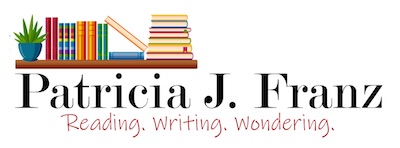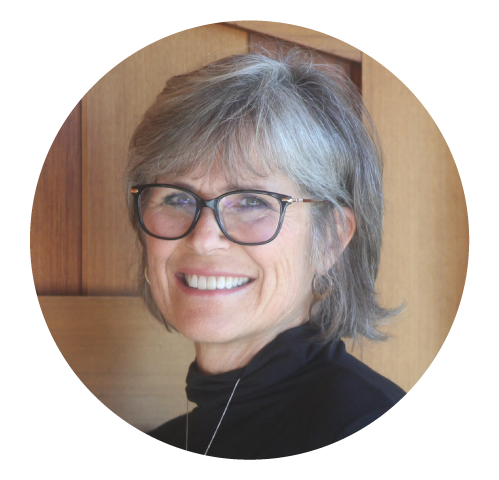Welcome to Poetry Friday!
Ruth at There is no such thing as a God-forsaken town
is our roundup host. I hope you’ll join us,
but I also hope you’ll take a peek at some incredible poetry below.

ORCHARD LANGUAGE: Poems by Kathy Pon
Kathy Pon calls “orchard language” her second language. It is a language, gleaned over a lifetime of listening to the land, absorbing its history of cultivation by ancestors, and by watching her husband who gives himself to it and shares it with her. Orchard Language is her debut chapbook, a collection of poems both narrative and lyric that reverence the rhythms of life, death, aging, and marriage.
Kathy Pon is my sister. We talk multiple times in any given week. About our kids, our parents, our country, and now our writing. Since retiring from education in 2020, Kathy turned to– or I should say returned to– writing (along with pickleball and her most-favorite pastime: being a Grammy).
We had the chance to sit together in person to chat about the launch of her chapbook. Much of this interview was recorded in an In-and-Out burger joint –to the amusement of our 91-year old mom who sat proudly nearby.
PF: When I think about us as kids, I remember you as The Writer. You wrote stories. But I don’t remember you writing poetry. When did poetry find you?
KP: My college roommate recently gave me a poem I wrote as a freshman. The words were something about finding self –– “I’ve come a long way, and I still have a way to go…”. Poetry for me then was writing songs on my guitar. When I retired, I took a Master Class from Billy Collins. He reminded me why I loved writing poetry and I was hooked.

Available September 26!
Pre-order now from Finishing Line Press.
PF: Maggie Smith opens her new book DEAR WRITER with: “Attention is a form of love.” We both turned to –or returned to– poetry sometime during the pandemic. We both had retired and found ourselves with time on our hands. We had time to “pay attention.” Does this ring true for you in your writing?

KP: When I retired and moved back to our ranch, we took twice daily walks with our dogs. So I began to notice things I had never seen before. I counted about 27 different kinds of birds on our property. I noticed the nuances of the trees, like before they bloom they start swelling at the end of January. You think the leaves fall in autumn, but for us, they die when we get a cold snap in November. They turn yellow, fall, and create this amazing yellow carpet at Christmas time. I guess paying attention is an appreciation for the natural world.
PF: I love this quote from Ralph Ellison’s novel Invisible Man: “If you don’t know where you are, you probably don’t know who you are.” Has your poetry helped you discover who you are? How have your surroundings informed the poetry in ORCHARD LANGUAGE?
KP: Many of my poems are about place– my home in the Central Valley. What really strikes me are the very mundane aspects of this place. Driving down the highway, seeing the gaudy aspects of where I live – you know, the Dorito bags in Johnson grass… It helps me realize how we are imperfect bodies in this imperfect world. For me, those truths come out as I pay attention to place. We need to bear witness to it for our own personal growth.
PF: That leads into one of my questions about the language of the orchard. Did you learn to listen to the orchard, and through your attention better understand it? What is the orchard language you hear?
KP: There is definitely a language there, not only the music in the orchard and the creatures that live in it, but also the language of living and aging and dying. Part of orchard language has to do with my mother-in-law who comes from a farming background and who was deeply interested in farming practices. She would call and it would be the first thing she would ask about– How is the water? What are the trees doing? How is the soil right now? In my book, the poem, “Orchard Language” is in three parts. Some of it is in conversation with my mother-in-law, especially as I learned more about farming. In the end, I say that orchard language is my second language, acknowledging my own learning of agricultural practices over time.

“…we are
imperfect
bodies
in this
imperfect
world.”
PF: This collection gathers from your observations of the land, nature, farmers, and human relationships that are woven through. Robin Wall Kimmerer writes about reciprocity and repair in our relationship with the land. How does this collection honor those?
KP: There’s always a dying and a rebirth. There’s a poem in the collection that expresses my grief when we tear out the orchard and it looks like an apocalypse. While we do replant –and I acknowledge there will be new life again– there is this realization that everything ages. I am aging. And I may not see these trees when they come into full production. I have a few poems exploring what is happening to the land through water and light pollution. Those are, I suppose, poems that call to mind questions of repair. Reciprocity is in the call to stewardship of the orchard. I see this through my poems that focus on my husband inspecting tomato fields, pruning trees, checking the irrigation. I hope there is a message that we’ve become such extractors of the land — there is a need to be good stewards – to care for our planet and give back to the land.
PF: I sense in your writing that you have grown into a deeper sense of what the land gives; that it gives beauty; it gives sustenance, life. Do you have a sense of your writing as a way to honor the land?
KP: In the book there is a poem about this Black Walnut tree that’s probably 100 years old. For me, it’s an empress overlooking the land. She sees weird things that we humans do– like drain manure and nitrates into the ground, dump stolen cars by the waterway, or send farm workers to work the fields under pretty dire conditions. The tree, to me, stands without judgment, observing all the bizarre and profane acts of humans – and still is able to just be. In finding her overlooking all of this, I see a need to honor her majesty and try to reconcile our flawed human actions with a way to be better.

RESERVE YOUR COPY TODAY
($15.99 + 3.99 shipping)
Pre-order Price Guarantee until August 1, 2025
Release Date: September 26, 2025
PF: One of the more beautiful layers found in these poems touches on marriage and aging. You weave both beauty and a bittersweet reality about the effects of time on both. Was this intentional or did it come about organically?
KP: My writing group pointed it out to me, and so yes, I leaned into it. There’s the rhythm of everyday life with a husband and that sense of growing old. The land is your connection to life. You walk the orchard daily, see its fruit (nuts), see your trees age, and feel time passing, your marriage maturing… There’s an acknowledgment of the need to appreciate — and make the most of time— so I definitely am leaning into that.

Kathy Pon earned a doctorate in education, but in retirement has turned to her life-long passion for reading and writing poetry. Her husband is a third-generation farmer, and they live on an almond orchard in rural California. Her poems have been featured in The Write Launch, The Orchards Poetry Journal, Eunoia Review, Penumbra and Passengers Journal, among others.
Here is one of my favorites:
Autumn Equinox
Every flower is ragged.
Zinnias once flourishing
in yellows and fuchsias
now droop, frazzled from
their work of bursting.
Marigolds crisped to brown
offer a few survivors
to bees and butterflies,
guests lingering
after summer’s glorious party.
I have consumed
all the season’s colors, remnants
strewn like faded confetti
about the yard.
Now I wander in and out of harvest dust
and smoke from distant wildfires
like a dragonfly dancing
in autumn’s dwindling light.
I too, am on a quest
for reassurance.
Equal parts light and darkness
with our southern hemisphere neighbors,
I want to hear my own voice
sing two-part harmony with a stranger.
But major chords bridge
to minor.
I feel my throat fraying as I float
away from fullness.
Macrame Literary Magazine: https://macramelit.com/articles/autumn-equinox/


 Patricia Franz writes picture books and poetry. She believes children, dogs, and sourdough have a lot to teach us about life, joy, and wonder. She has raised two boys, four dogs, and holds a master’s degree in Theology with a focus on children’s spirituality. Patricia, her husband, her Bernese Mountain dog, Bonny, and her sourdough starter split their time between the Arizona desert and the Sierra Nevada mountains.
Patricia Franz writes picture books and poetry. She believes children, dogs, and sourdough have a lot to teach us about life, joy, and wonder. She has raised two boys, four dogs, and holds a master’s degree in Theology with a focus on children’s spirituality. Patricia, her husband, her Bernese Mountain dog, Bonny, and her sourdough starter split their time between the Arizona desert and the Sierra Nevada mountains. 
Thanks for a FRUITFUL conversation!
K
Really good insights about your writing and motivations, Kathy! I’m looking forward to getting your new book.
How fun that you and your sister can share a passion for writing!
Wow! What a beautiful, beautiful post. I love how lovingly you interviewed your sister and how much her poem bursts with it’s own appreciation like those zinnias. I’m so fortunate to live at this time of knowing you who introduced me to Kathy. Thank you.
I really love that she thinks of orchard language as her second language. I love the specificity of that and can’t wait to read!